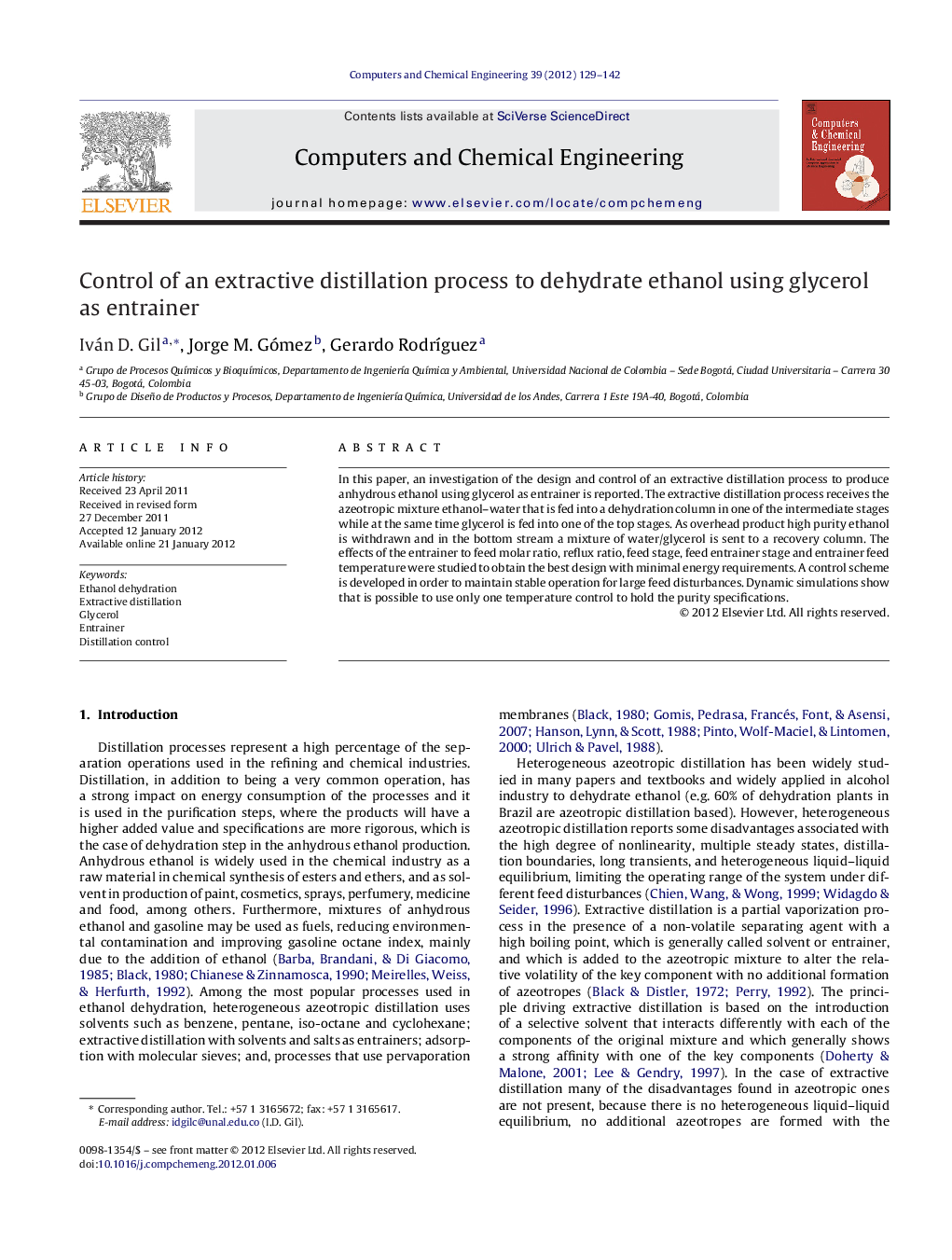| Article ID | Journal | Published Year | Pages | File Type |
|---|---|---|---|---|
| 172885 | Computers & Chemical Engineering | 2012 | 14 Pages |
In this paper, an investigation of the design and control of an extractive distillation process to produce anhydrous ethanol using glycerol as entrainer is reported. The extractive distillation process receives the azeotropic mixture ethanol–water that is fed into a dehydration column in one of the intermediate stages while at the same time glycerol is fed into one of the top stages. As overhead product high purity ethanol is withdrawn and in the bottom stream a mixture of water/glycerol is sent to a recovery column. The effects of the entrainer to feed molar ratio, reflux ratio, feed stage, feed entrainer stage and entrainer feed temperature were studied to obtain the best design with minimal energy requirements. A control scheme is developed in order to maintain stable operation for large feed disturbances. Dynamic simulations show that is possible to use only one temperature control to hold the purity specifications.
► This is a new alternative for dehydrate ethanol taking into account that glycerol is available at low cost. ► The least energy demand corresponds to low entrainer feed temperatures and low reflux molar ratios. ► Variation in temperature is low which is desirable because the energy consumption is not strongly affected in the transient periods. ► It has been demonstrated the potential effect of glycerol in modifying the vapor–liquid equilibrium of ethanol–water mixture eliminating the azeotrope.
